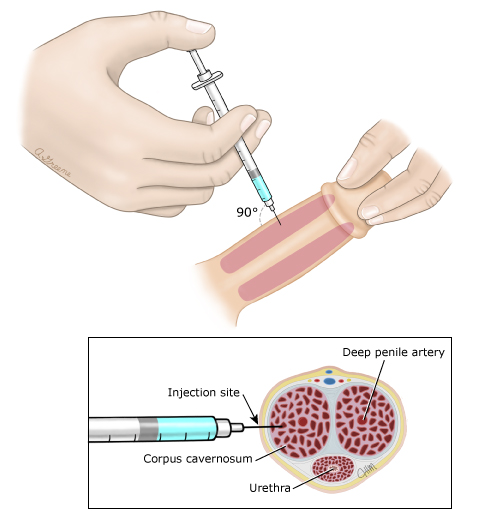Increasing blood flow to the penis is vital for maintaining a healthy sex life and overall sexual well-being. Poor circulation can lead to difficulties achieving and sustaining erections, which can affect self-confidence and intimacy. However, there are various ways to boost blood flow to the penis without resorting to medication or invasive procedures.

1. Regular Exercise: Engaging in physical activities such as jogging, swimming, or cycling can improve cardiovascular health and increase blood flow throughout the entire body, including the penis. Aim for at least 30 minutes of moderate exercise most days of the week.
2. A Healthy Diet: Eating a balanced diet rich in fruits, vegetables, whole grains, and lean proteins provides essential nutrients that promote good blood flow. Incorporate foods like leafy greens, citrus fruits, onions, and garlic into your meals to enhance circulation.
3. Hydration: Staying properly hydrated improves blood circulation. Make sure to consume enough water throughout the day to maintain optimal bodily functions.
4. Quit Smoking: Smoking damages blood vessels and restricts blood flow, negatively impacting erectile function. Quitting smoking not only improves overall health but can significantly enhance blood flow to the penis.
5. Reduce Stress: Stress constricts blood vessels, hampering the flow of blood to the penis. Practicing stress management techniques like meditation, deep breathing exercises, or engaging in hobbies can help mitigate stress levels and improve circulation.
6. Maintain a Healthy Weight: Obesity and excess body fat can impair blood flow. By adopting healthy eating habits and incorporating regular exercise, you can maintain an ideal weight and promote better circulation.
7. Pelvic Floor Exercises: Strengthening the pelvic floor muscles can enhance blood flow to the penis. Incorporate exercises like Kegels into your routine to improve erectile function.
8. Adequate Sleep: Lack of sleep affects overall health, including blood flow. Aim for 7-9 hours of quality sleep each night to help optimize circulation.
In conclusion, by implementing these lifestyle changes and techniques, you can naturally increase blood flow to the penis and improve erectile function. Remember, consistency and patience are key when seeking long-term improvements. If you experience persistent difficulties, it's important to consult a healthcare professional for tailored advice. Prioritize your sexual well-being and take proactive steps to enhance blood flow, ultimately leading to a healthier and more satisfying sex life.
Related FAQs about how to increase blood flow to penis
How does regular exercise help increase blood flow to the penis?
Regular exercise helps improve cardiovascular health, which in turn enhances blood flow throughout the body, including the penis. Engaging in physical activities like jogging, swimming, or cycling promotes better circulation.
Can diet affect blood flow to the penis?
Yes, a healthy diet plays a crucial role in maintaining good blood flow to the penis. Consuming foods rich in fruits, vegetables, whole grains, and lean proteins provides essential nutrients that promote optimal circulation.
Does smoking affect blood flow to the penis?
Yes, smoking damages blood vessels and restricts blood flow, including to the penis. Quitting smoking not only improves overall health but also significantly enhances blood flow and erectile function.
How does stress impact blood flow to the penis?
Stress constricts blood vessels, hampering the flow of blood to the penis and affecting erectile function. Managing stress through techniques like meditation or engaging in hobbies can help improve circulation and reduce the impact on sexual health.
Can maintaining a healthy weight improve blood flow to the penis?
Yes, maintaining a healthy weight is important for promoting good blood flow to the penis. Obesity and excess body fat can impair circulation, so adopting healthy eating habits and incorporating regular exercise can contribute to better erectile function.
Glossary about how to increase blood flow to penis
1. Cardiovascular health: Cardiovascular health refers to the well-being and functioning of the cardiovascular system, which includes the heart, blood vessels, and blood. It relates to the ability of the heart and blood vessels to supply oxygen and nutrients to the body's organs and tissues.
2. Pelvic floor muscles: The pelvic floor muscles are a group of muscles that stretch from the tailbone to the pubic bone, forming a supportive hammock-like structure at the bottom of the pelvis. These muscles play a crucial role in supporting the organs in the pelvis and are involved in urinary and bowel control as well as sexual function.
3. Kegels: Kegels are exercises that involve contracting and relaxing the pelvic floor muscles. They are named after Dr. Arnold Kegel, who popularized these exercises for improving pelvic floor strength and treating conditions such as urinary incontinence.
4. Obesity: Obesity is a medical condition characterized by excessive accumulation of body fat to the extent that it may have a negative effect on health. It is commonly assessed using the body mass index (BMI) and is associated with various health risks, including cardiovascular disease, diabetes, and impaired circulation.
5. Erectile function: Erectile function refers to the ability to achieve and maintain an erection sufficient for sexual activity. It is influenced by factors such as blood flow to the penis, hormonal balance, nerve function, and psychological well-being.
